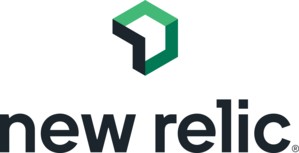Artificial intelligence companies are riding a hyper-accelerated growth curve. Like the crack of a starting gun, the November 2022 launch of ChatGPT awakened the world to the vast potential of AI—particularly generative AI. As more companies invest in machine learning, automation, robotics, and AI-based data analytics solutions, the AI algorithm has quickly become the foundational technology of business.
This list of AI companies chronicles this growth by reflecting the dynamic shifts disrupting the tech industry. It covers the full ecosystem of AI vendors: new generative AI companies, entrenched giants, AI purveyors across verticals, and upstart visionaries. There’s no telling which will most influence AI’s future, but we believe that the players on this list as a whole will profoundly reshape technology and, as a direct result, the arts, retail, and the entirety of culture.
Featured Partners: AI Software
TABLE OF CONTENTS
AI Giants
It’s no coincidence that this top AI companies list is composed mostly of cloud providers. Artificial intelligence requires massive storage and compute power at the level provided by the top cloud platforms. These cloud leaders are offering a growing menu of AI solutions to existing clients, giving them an enormous competitive advantage in the battle for AI market share. The cloud leaders represented also have deep pockets, which is key to their success, as AI development is exceptionally expensive.
Microsoft
Enterprise leader in AI
- Market Cap: $3.1 Trillion
- Headquarters: Redmond, WA
- Founded: 1975
- Annual Revenue: $198.3 Billion

As a dominant provider of enterprise solutions and a cloud leader—its Azure Cloud is second only to AWS—Microsoft has invested heavily in AI, with plenty to show for it. For example, it has significantly expanded its relationship with OpenAI, the creator of ChatGPT, leading to the development of intelligent AI copilots and other generative AI technologies that are embedded or otherwise integrated with Microsoft’s products. Leveraging its massive supercomputing platform, its goal is to enable customers to build out AI applications on a global scale. With its existing infrastructure and partnerships, current trajectory, and penchant for innovation, it’s likely that Microsoft will be the leading provider of AI solutions to the enterprise in the long run.
Amazon Web Services (AWS)
Top-tier managed services for cloud and AI
As the top dog in the all-important world of cloud computing, few companies are better positioned than AWS to provide AI services and machine learning to a massive customer base. In true AWS fashion, its profusion of new tools is endless and intensely focused on making AI accessible to enterprise buyers. AWS’s long list of AI services includes quality control, machine learning, chatbots, automated speech recognition, and online fraud detection. It is one of the best providers of innovative AI managed services.

To learn about new direction in generative AI, see the eWeek video: AWS VP Bratin Saha on the Bedrock Generative AI Tools.
Leading generative AI for technical and non-technical audiences
As the most successful search giant of all time, Google’s historic strength is in algorithms, which is the very foundation of AI. Though Google Cloud is perennially a distant third in the cloud market, its platform is a natural conduit to offer AI services to customers. The Gemini ecosystem has proven especially popular and innovative, combining access to generative AI infrastructure, developer tools, and a user-friendly natural language interface. The company is also heavily focused on responsible AI and communicating how it is working toward an ethical AI approach.

IBM
Founder of Watson and watsonx AI solutions
A top hybrid and multicloud vendor, boosted by its acquisition of Red Hat in 2019, IBM’s deep-pocketed global customer base has the resources to invest heavily in AI. IBM has an extensive AI portfolio, highlighted by the Watson platform, with strengths in conversational AI, machine learning, and automation. The company invests deeply in R&D and has a treasure trove of patents; its AI alliance with MIT will also likely fuel unique advances in the future.

Nvidia
Leading provider of GPUs and other AI infrastructure
All roads lead to Nvidia as AI—especially generative AI and larger models—grows ever more important. At the center of Nvidia’s strength is the company’s wicked-fast GPUs, which provide the power and speed for compute-intensive AI applications. Additionally, Nvidia offers a full suite of software solutions, from generative AI to AI training to AI cybersecurity. It also has a network of partnerships with large businesses to develop AI and frequently funds AI startups.

For an in-depth look a how generative AI and advanced hardware are changing security, see the eWeek video: Nvidia CSO David Reber on AI and Cybersecurity.
Meta
Embedded AI assistance in social media apps
Meta—the parent company of Facebook, Instagram, and many other popular platforms—has had a slightly slower start on generative AI than some of the other tech giants, but it has nonetheless blazed through to create some of the most ubiquitous and innovative solutions on the market today. Meta’s Llama 3, for example, is one of the largest and easiest to access LLMs on the market today, as it is open source and available for research and commercial use. The company is also very transparent with its own AI research and resources. Most recently, Meta has developed Meta AI, an intelligent assistant that can operate in the background of Facebook, Messenger, Instagram, and WhatsApp.

Baidu
Chinese innovator in AI and quantum computing
Little known in the U.S., Baidu owns the majority of the internet search market in China. The company’s AI platform, Baidu Brain, processes text and images and builds user profiles. With the most recent generation, Baidu Brain 6.0, quantum computing capabilities have also expanded significantly. It has also launched its own ChatGPT-like tool, a generative AI chatbot called Ernie Bot.
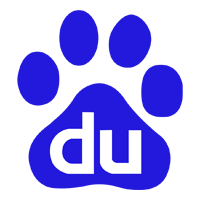
Oracle
Leader in cloud-based AI support
Oracle’s cloud platform has leapt forward over the past few years—it’s now one of the top cloud vendors—and its cloud strength will be a major conduit for AI services to come. To bulk up its AI credentials, Oracle has partnered with Nvidia to boost enterprise AI adoption. The company stresses its machine learning and automation offerings and also sells a menu of prebuilt models to enable faster AI deployment.

To find out how a cloud leader is facing the challenges of today’s IT sector, see the eWeek video: Oracle Cloud’s Leo Leung on Cloud Challenges and Solutions.
Alibaba
Cloud leader and innovator in APAC region
Alibaba, a Chinese e-commerce giant and leader in Asian cloud computing, split into six divisions, each empowered to raise capital. Of particular note is the Alibaba Cloud Intelligence group, which handles cloud and AI innovations and products. While Alibaba has been greatly hampered by government crackdowns, observers see the Cloud Intelligence group as a major support of AI development. The company is also working to optimize a ChatGPT-like tool.

For more information about today’s leading generative AI software, see our guide: Top 20 Generative AI Tools & Applications.
AI Pioneers
Think of these AI companies as the forward-looking cohort that is inventing and supporting the systems that propel AI forward. It’s a mixed bunch with diverse approaches to AI, some more directly focused on AI tools than others. Note that most of these pioneer companies were founded between 2009 and 2013, long before the ChatGPT hype cycle.
These companies are at the center of a debate about who will have the most control over the future of AI. Will it be these agile and innovative pioneers, or the giant cloud vendors that have the deep infrastructure that AI needs and can sell their AI tools to an already-captive customer base?
OpenAI
Founder of ChatGPT
The world was forever changed when OpenAI debuted ChatGPT in November 2022—a major milestone in the history of artificial intelligence. Founded in 2015 with $1 billion in seed funding, San Francisco-based OpenAI benefits from a cloud partnership with Microsoft, which has invested a rumored $13 billion in OpenAI. Not content to rest on its success, OpenAI has launched GPT-4, a larger multimodal version of its successful LLM foundation model, and continues to innovate in areas like text-to-video generation. The company also offers DALL-E, which creates artistic images from user text prompts.

C3.ai
Industry-focused AI solutions and services
Founded in 2009, C3.ai is part of a new breed of vendors that can be called an “AI vendor”: not a legacy tech company that has shifted into AI but a company created specifically to sell AI solutions to the enterprise. The company offers a long menu of turnkey AI solutions so companies can deploy AI without the complexity of building it themselves. Clients include the U.S. Air Force, which uses AI to predict system failure, and Shell, which uses C3.ai to monitor equipment across its sprawling infrastructure.

For in-depth comparison of C3.ai and a major competitor, see our guide: C3.ai vs. DataRobot: Top Cloud AI Platforms.
H2O.ai
Solutions provider for generative and predictive AI
Founded in 2011, H2O.ai is another company built from the ground up with the mission of providing AI software to the enterprise. H2O focuses on “democratizing AI.” This means that while AI has traditionally been available only to a few, H2O works to make AI practical for companies without major in-house AI expertise. With solutions for AI middleware, AI in-app stores, and AI applications, the company claims thousands of customers for its H2O Cloud.
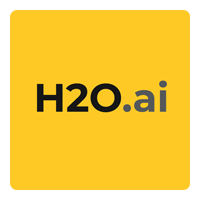
To learn how computers can “see” the world around them, watch our eWeek video: H2O.ai’s Prashant Natarajan on AI and Computer Vision.
DataRobot
Cloud-agnostic AI and data solutions
Founded in 2012, DataRobot offers an AI Cloud that’s “cloud-agnostic,” so it works with all the cloud leaders (AWS, Azure, and Google, for example). It’s built with a multicloud architecture that offers a single platform accessible to all manner of data professionals. Its value is that it provides data pros with deep AI support to analyze data, which supercharges data analysis and processing. Among its outcomes is faster and more flexible machine learning model creation.

For in-depth comparison of DataRobot and a major competitor, read DataRobot vs. H2O.ai: Top Cloud AI Platforms.
Snowflake
Next-gen data warehouse and AI data cloud vendor
Founded in 2012, Snowflake is a next-gen data warehouse vendor. Artificial intelligence requires oceanic amounts of data, properly prepped, shaped, and processed, and supporting this level of data crunching is one of Snowflake’s strengths. Operating across AWS, Microsoft Azure, and Google Cloud, Snowflake’s AI Data Cloud aims to eliminate data silos for optimized data gathering and processing.

For an expert take on how today’s IT platforms are enabling wider data access, see the eWeek video: Snowflake’s Torsten Grabs on AI and Democratizing Data.
Dataiku
Low-code/no-code AI/ML model development platform
Founded in 2013, Dataiku is a vendor with an AI and machine learning platform that aims to democratize tech by enabling both data professionals and business professionals to create data models. Using shareable dashboards and built-in algorithms, Dataiku users can spin up machine learning or deep learning models; most helpfully, it allows users to create models without writing code.

Altair (RapidMiner)
End-to-end data analytics and AI workflows
Since RapidMiner was acquired by Altair in 2022, the vendor has continued to grow and improve its no-code AI app-building features, which allow non-technical users to create applications without writing software. The company also offers a no-code MLOps solution that uses a containerized approach. As a sign of the times, users can build models using a visual, code-based, or automated approach, depending on their preference.

Domino Data Lab
Unified AI orchestration solution provider
Founded in 2013, Domino Data Lab offers both comprehensive AIOps and MLOps (machine learning operations) solutions through its platform technology. With its enterprise AI platform, users can easily manage their data, software, apps, APIs, and other infrastructural elements in a unified ecosystem. Users have the option to work with hybrid or multicloud orchestration, and they can also choose between a SaaS or self-managed approach. Domino Data Lab has partnered with Nvidia to provide a faster development environment, so expect more innovation from them soon.

To learn how today’s software developers are finding ways to work faster, see the eWeek video: Domino Data Lab’s Jack Parmer on “Code First” Data Science.
Databricks
AI-optimized data lakehouses and infrastructure
Founded in 2013, Databricks offers an enterprise data intelligence platform that supports the flexible data processing needed to create successful AI and ML deployments; think of this data solution as the crucial building block of artificial intelligence. Through its innovative data storage and management technology, Databricks ingests and preps data from myriad sources. Its data management and data governance tools work with all major cloud players. The company is best known for its integration of the data warehouse (where the data is processed) and the data lake (where the data is stored) into a data lakehouse format.

Interested in the relationship between AI and Data? See the eWeek video: Databricks’s Chris D’Agostino on AI and Data Management.
Adobe
AI solutions for graphic designers and creatives
Adobe is a SaaS company that primarily offers marketing and creative tools to its users. The company has begun to enhance all of these products with AI solutions, including Adobe Firefly, a robust generative AI tool and assistant that helps users personalize marketing assets, edit visual assets for better quality, and generally create creative content at scale across different Adobe suite products. In late 2023, Adobe expanded its AI capabilities through its acquisition of Rephrase.ai, a text-to-video studio solution.

Alteryx
Drag-and-drop approach to data and AI modeling
A prime example of a mega theme driving AI, Alteryx’s goal is to make AI models easier to build. The goal is to abstract the complexity and coding involved with deploying artificial intelligence. The platform enables users to connect data sources to automated modeling tools through a drag-and-drop interface, allowing data professionals to create new models more efficiently. Users grab data from data warehouses, cloud applications, and spreadsheets, all in a visualized data environment. Alteryx was founded in 1997.

Learn about the major trend toward enabling wider access to data by watching the eWeek video: Alteryx’s Suresh Vittal on the Democratization of Data Analytics.
Inflection AI
A conversational approach to generative content
Inflection AI labels itself as an AI studio that is looking to create advanced applied AI that can be used for more challenging use casesWhile it has hinted at other projects in the works, its primary product right now is Pi, a conversational AI that is designed to take a personalized approach to casual conversations. Pi can be accessed through pi.ai as well as iOS and Android apps. The company was founded by many former leaders from DeepMind, Google, OpenAI, Microsoft, and Meta, though several of these leaders have since left to work in the new Microsoft AI division of Microsoft. It’s truly up in the air how this change will impact the company and Pi, though they expect to release an API in the near future.

Scale AI
Leading provider of AI for public sector use cases
Scale is an AI company that covers a lot of ground with its products and solutions, giving users the tools to build, scale, and customize AI models—including generative AI models—for various use cases. The Scale Data Engine simplifies the process of collecting, preparing, and testing data before AI model development and deployment, while the Scale Generative AI Platform and Scale custom LLMs give users the ability to fine-tune generative AI to their specifications. Scale is also a leading provider of AI solutions for federal, defense, and public sector use cases in the government.

Arista Networks
Leader in AI networking solutions
Arista Networks is a longstanding cloud computing and networking company that has quickly advanced its infrastructure and tooling to accommodate high-volume and high-frequency AI traffic. More specifically, the company has worked on its GPU and storage connections and sophisticated network operating software. Tools like the Arista Networks 7800 AI Spine and the Arista Extensible Operating System (EOS) are leading the way when it comes to giving users the self-service capabilities to manage AI traffic and network performance.

Cloudera
Hybrid, cloud-agnostic data platform
Having merged with former competitor Hortonworks, Cloudera now offers the Cloudera Data Platform and the Cloudera Machine Learning solution to help data pros collaborate in a unified platform that supports AI development. The ML solutions are specifically designed to perform data prep and predictive reporting. As an example of emerging trends, Cloudera provides “portable cloud-native data analytics.” Cloudera was founded in 2008.

For an inside view of where data leader Cloudera is headed, see the eWeek video: Cloudera’s Ram Venkatesh on the Cloudera Roadmap.
Accubits
Leader in blockchain, Web3, and metaverse technologies
Accubits is a blockchain, Web3, and metaverse tech solutions provider that has expanded its services and projects into artificial intelligence as well. The company primarily works to support other companies in their digital transformation efforts, offering everything from technology consulting to hands-on product and AI development. The company’s main AI services include support for AI product and model development, consulting for generative AI projects, solution architecting, and automation solutions.

AI Visionaries
If the AI pioneers are a mixed bag, this group of AI visionaries is heading off in an even wider array of directions. These AI startups are closer to the edge, building a new vision even as they imagine it—they’re inventing the generative AI landscape in real time, in many cases. More than any technology before, there’s no roadmap for the growth of AI, yet these generative AI startups are proceeding at full speed.
Anthropic
Generative AI leader committed to constitutional AI
Founded by two former senior members of OpenAI, Anthropic’s generative AI chatbot, Claude 3, provides detailed written answers to user questions; with this most recent generation, certain aspects of multimodality have been introduced while other components of the platform have been improved. In essence, it’s another tool that operates like ChatGPT, but with a twist: Anthropic publicly proclaims its focus on Constitutional AI, a methodology it has developed for consistent safety, transparency, and ethicality in its models.

Glean
Leader in generative enterprise search technology
Considered one of the unicorns of the emerging generative AI scene, Glean provides AI-powered search that primarily focuses on workplace and enterprise knowledge bases. With its Workplace Search, Assistant, Knowledge Management, Work Hub, and Connectors features, business leaders can set up a self-service learning and resource management tool for employees to find important documentation and information across business applications and corporate initiatives.

Adept
Commitment to general intelligence AI assistants
Currently, generative AI platforms like DALL-E and GPT-4 create images or text in response to user text prompts. Adept is building the next step: It’s creating a full-fledged digital assistant—“an AI teammate for everyone”—that will execute a series of complex commands based on text prompts, even for developer tasks. As an example of how Adept works, if you type in the prompt, “convert this client into a sales opportunity,” the Adept digital assistant performs various actions to complete the sale. Ideally, Adept’s platform will be able to use any API, software app, or website just as a human would. Though Adept is a fledgling—founded in 2022—it has attracted massive funding.

Synthesia
Generative AI video platform with AI avatars
Is the person in this video real or virtual? Synthesia uses AI to create video avatars who speak and present as if they’re human. The AI company offers more than 150 stock AI avatars to allow users to create a virtual talking head using text prompts. To add realism, the avatars can be customized with facial gestures like raised eyebrows, head nods, and local languages and dialects.

To learn about the future of video and AI, see the eWeek video: Synthesia CEO Victor Riparbelli on AI and Video Avatars.
Ironclad
AI for contract lifecycle management
Ironclad is a contract lifecycle management vendor that uses AI to manage contract data, contract creation, analytics, and more. Its contract review process is thorough and customizable, offering users AI-driven suggestions for how to improve existing contracts based on both best practices and the AI playbooks users upload themselves; the platform also includes a comprehensive AI-powered editor and a repository that makes contracts editable in a Word-Document-like format. More recently, the vendor has come out with Ironclad Contract AI, an AI assistant that supports users with chat-driven solutions for additional contract tasks and queries.

Cohere
Leading models with accessible AI playground
Founded in 2019 by an elite group of AI experts, most of whom were former researchers at Google Brain, Cohere’s goal is to enable more natural communication between humans and machines for generative AI, search, discovery, and retrieval tasks. The startup builds large language models for enterprise customers, accessible via an API, which is clearly a lucrative new niche. Funding has gushed in. Its top models are the Command, Rerank, and Embed models.

Abacus.ai
AI technology used to build AI technology
Founded in 2019, Abacus creates pipelines between data sources—such as Google Cloud, Azure, and AWS—and then allows users to custom-build and monitor machine learning models. A unique aspect of this platform is that it also enables AI to build AI agents and systems rather than requiring hands-on human intervention. Abacus’s prebuilt AI technology can be used to build AI solutions like LLMs and can provide additional information about these models to improve explainability.

Gong
AI-powered revenue, service, and sales intelligence
Gong is a fast-growing provider of customer service, sales, and marketing solutions that focus on revenue and engagement intelligence and analytics. AI is infused throughout the platform and is used to provide contextual information and recommendations for customer interactions, as well as coaching for internal team members. The vendor also offers its smart trackers tool, which gives users the ability to train Gong’s AI to more granularly detect certain types of customer interactions and red-flag behaviors.

Runway
Text-to-video and video-to-video content generation platform
The three founders of Runway met in art school, where they were immersed in digital design software. Their generative AI platform, which is browser-based and requires no plugins, creates images and videos from text prompts. Think of it as a filmmaker’s dream: If you can imagine it, the Runway platform will help you create it. Runway already has a major production credit for the film Everything Everywhere All At Once, which won Best Picture in the 2023 Academy Awards. Its most recent models and developments have earned high praise for their realism and controllability.

Openstream.ai
Highly configurable conversational AI
Openstream.ai is a player in the rapidly growing conversational AI market. Openstream.ai’s Eva platform leverages sophisticated knowledge graphs that use both structured and unstructured data, enabling it to work across multiple channels, including social media platforms. Openstream.ai uses this AI architecture to power natural language understanding (NLU), which involves impressive levels of reading comprehension. The vendor also develops copilots, help des and contact center agents, and other customer service solutions with its conversational AI approach.

Samsara
AI-powered driving assistance and analytics
Samsara is an IoT company that has brought forth several innovative technologies over the years, but more recently, it has expanded into AI for driver and road safety. The company’s built-in AI and advanced edge computing for vehicles give drivers and/or fleet managers real-time insights into road conditions and driving performance, as well as coaching workflows and in-cab driver assistance. AI dash cams are built into vehicles and designed to send footage directly to the cloud, so fleet managers and business owners can review driver and vehicle issues in a timely manner.

Moveworks
AI for IT and support workflows
Moveworks is an AI company that focuses on creating generative AI and automated solutions for business operations and employee and IT support. The platform is filled with AI-powered features, including AI workflows, analytics, knowledge management, and ticket and task automation. The company is also leading the way with copilot assistive AI technology, giving users access to tools like MoveLM, an LLM that’s dedicated to employee support queries and tasks.

Synthesis AI
AI for multiple computer vision scenarios
Synthesis AI is a generative AI and synthetic data company that focuses on creating data and models for computer vision use cases. The platform can be used for a variety of use cases spanning across industries, including AR/VR/XR, virtual try-on, teleconferencing, driver and pedestrian monitoring, and security. It can also be used in biometrics and security, specifically for ID verification and threat detection.

Insitro
Multidisciplinary, AI-powered approach to drug discovery
Founded by a former professor of machine learning at Stanford, Insitro’s goal is to improve the drug discovery process using AI to analyze patterns in human biology. Drug discovery is enormously expensive, and it’s typically met with low success rates, so AI’s assistance is greatly needed. Driving this development is the company’s mixed team of experts, including data scientists, bioengineers, and drug researchers.

Eightfold AI
AI solution for recruiters and talent management
Eightfold AI is a vendor that uses AI-powered technology to make recruitment, onboarding, retention, and other organizational talent management tasks easier to manage at scale. Users can work with the vendor’s all-encompassing Talent Intelligence Platform, which includes features not only for talent acquisition and talent management but also for resource management. Its automations and smart analytics help users to comb through larger quantities of applicants at a quicker pace while ensuring they identify top talent and new talent pipelines with minimal bias.

InVideo
Customizable AI videos for social media
InVideo is an AI video company that focuses on automating script, scene, voiceover, and overall video production. The platform is frequently used for digital marketing and content marketing projects, allowing users to transform blogs and other text prompts into YouTube, talking avatar, Instagram, and other types of engaging video content. Users can customize the content the platform generates by inputting target audience, platform, and other customization instructions.

FarmWise
AI-powered farming technology innovator
Forget using chemicals to kill weeds in agricultural fields: FarmWise’s weeding robot uses AI and computer vision to yank out weeds without the herbicide. The FarmWise machine resembles a tractor with many arms and uses what the company calls its Intelligent Plant Scanner, a tool that is capable of sub-inch weeding accuracy.

Generative AI Companies
Generative AI is a type of artificial intelligence that can generate content based on user text prompts. The benefits of generative AI are remarkable: finished essays, interesting graphics, complex software code, and more. However, its shortcomings and issues are also significant: Generative AI can lead to cybersecurity concerns or “hallucinate,” meaning it creates false or even defamatory information. Despite these challenges, businesses are flocking to the new technology and generative AI startups are launching daily.
Meanwhile, a highly charged debate is roiling within the generative AI sector. These AI platforms are trained on a massive store of existing material, including the work of artists and writers—but what are the copyright issues? Who owns the output of generative AI applications? These are thorny ethical issues with no clear answer at this point, though more may come as AI regulations continue to pass into law.
Tabnine
Generative AI coding assistant
Tabnine is an AI company that focuses on providing AI assistance for coding and product development. The tool is designed to automate and complete code wherever possible, provide coding suggestions, and do all of this work while also ensuring that all code and data remains secure and compliant. The tool emphasizes AI ethics as well, ensuring users know that it has only been trained on open-source data repositories with permission.

Midjourney
AI-powered image generation and editing solutions
A generative AI service that creates images from natural language text prompts, Midjourney is one of the most popular generative AI platforms. Founded in 2022, it has already been used to generate surprisingly high-profile art: For example, the English publication The Economist has used Midjourney to create its cover image, and a Midjourney image scored top honors in a digital art contest hosted by the Colorado State Fair.

Infinity AI
Synthetic-data-as-a-service provider
Infinity AI speeds up the process of building digital models by employing AI to create and shape synthetic data (synthetic data is computer-generated data churned out to fill in a model). In essence, Infinity AI uses AI to offer synthetic data-as-a-service, which is a niche sector that will grow exceptionally quickly in the years ahead.

Notion
Embedded AI assistance in project management platform
Notion is a project management platform that has pioneered AI assistance tools for project management professionals. Its latest collection of features, Notion AI, is available directly inside of Notion for users who want to optimize and automate their project workflows. Notion’s AI assistance can be used for task automation, note and doc summaries, action item generation, and content editing and drafting.

Podcast.ai (PlayHT)
AI for automated podcast creation
Who needs humans? Podcast.ai, powered and run by PlayHT, an AI voice and text-to-speech company, is a podcast series that is created by generative AI on an ongoing basis. Each episode is produced using realistic voice models, and the text is culled from archival material about that guest. Impressively, Podcast.ai released a Steve Jobs “appearance” by feeding the system his biography and reams of related material; the real-life Joe Rogan was able to interview “Steve Jobs” with this development.

Hugging Face
Extensive AI modeling community and resource library
Originally the developer of a chatbot aimed at the teen crowd, Hugging Face has evolved into a repository for prebuilt machine learning and artificial intelligence models across vendors and use cases. Now a significant player in the generative AI sector, thousands of companies use Hugging Face’s platform to generate AI-based applications. The company’s motto is “The AI community building the future.”

Stability AI
Multimodal open AI model developer
Stability AI is a generative AI company that supports Stable Diffusion, an AI model in multiple generations that generates images in response to user text prompts. Since its initial venture into AI image generation, the company has also expanded into video, audio, 3D, and language models. The company also offers specialized applications: Stable Assistant, a chatbot for text-to-image generation; Stable Artisan, a generative AI bot on Discord for multimodal content generation; and Stable Audio, a music and audio generation solution.

MOSTLY AI
Synthetic data generation for finance sector
Focusing on synthetic data generation, MOSTLY AI touts that the synthetic data it creates with generative AI appears as authentic as actual consumer data. The advantage is that this data doesn’t contain the original private data, so it’s compliant with privacy and data governance standards. The company works across a range of industries, including banking and insurance.

Syntho
Synthetic data generation for digital twins
Syntho’s Syntho Engine uses generative AI to create synthetic data, offering a self-service platform that also supports smart de-identification and test data management use cases. The company creates data to build digital twins that respect privacy and GDPR regulations. Its goal is to “enable the open data economy,” in which data can be shared more widely while ensuring sensitive consumer data is protected.

Jasper
Generative AI platform for marketing content creation
Similar to ChatGPT, though with a marketing focus, Jasper uses generative AI to churn out text and images to assist companies with brand-building content creation. The AI solution learns to create in the company’s “voice,” no matter how mild or spiky, for brand consistency. The company also claims to incorporate recent news and information for a current focus on any market sector.

Biomatter
Generative AI for new protein creation
Biomatter leverages generative AI to create synthetic biologic materials, specifically new proteins “for health and sustainable manufacturing applications.” This technology for creating synthetic proteins means new enzymes can be created with completely novel properties and use cases. Clearly, this is just one of many examples of how generative AI will play a crucial role in the future of medicine.

You.com
User-friendly, customizable search solution
Should Google be threatened in its internet search business? If so, the generative AI platform You.com—“the AI search engine you control”—could be part of the competition. Type a query into You.com, and the ChatGPT-style website will create content based on your request. Most recently, a mobile version of the tool was released to the general public.

Osmo
AI-powered sense of smell for computers
Computers, it seems, will soon have a sense of smell. Osmo is digitizing and analyzing scents with the goal of improving healthcare and consumer products like shampoo and insect repellent. The company is creating a vast “map” of scents, called a Principal Odor Map. There are said to be billions of molecules that carry a scent, but only about 100 million of them are known. Osmo utilizes Google Cloud’s AI platform for its generative AI work.

AI Enterprise Majors
A popular saying has emerged among IT experts: “Every company is a tech company.” Using technology is now so central to being competitive that it’s a core focus for every company, regardless of sector.
Now this saying has a companion: “Every tech company is an AI company.” This means that major enterprise tech vendors that have long sold legacy hardware and software are now shifting to artificial intelligence. These big vendors are using their deep pockets and expertise to create AI solutions or acquire AI companies.
In fact, these enterprise majors started investing in AI long before chatbots like ChatGPT burst onto the scene. So while their tools don’t get the buzz of DALL-E, they do enable staid legacy infrastructures to evolve into responsive, automated, AI-driven platforms.
Salesforce
Einstein AI for CRM users
Not long after OpenAI debuted ChatGPT, Salesforce followed up with Einstein GPT, which it calls “the world’s first generative AI platform for CRM.” Powered by OpenAI, the solution creates personalized content across every Salesforce cloud. For instance, it uses generative AI with Slack to offer conversation summaries and writing help, but it also has AI assistance and copilot-like functionalities that are specific to service, sales, marketing, and e-commerce use cases.
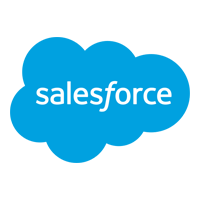
To learn about the future of conversational AI, see the eWeek video: Salesforce Chief Scientist Silvio Savarese on Conversational AI.
BMC Software
Automated AI-driven service management (AISM)
Among its other AI-enhanced offerings, BMC’s Helix solution uses AI and ML-based intelligent automation as part of an IT services and operation management platform. The company also provides AIOps solutions (AI for IT operations), a sector that is evolving toward AI for overall business support. The company’s larger focus—one that relies heavily on AI—is the autonomous digital enterprise. However, the Helix platform itself focuses primarily on using AI for better service management workflows.

Learn how a major industry expert sees the DataOps sector by watching the eWeek video: BMC CEO Ayman Sayed on DataOps and the Autonomous Digital Enterprise.
HPE
Rapid AI deployment and enterprise scalability provider
HPE’s Greenlake is an IT-as-a-service solution with a hybrid cloud focus. Part of this on-demand platform is a GPU offering that enables the rapid deployment of AI and machine learning tools. HPE focuses on providing AI geared for various verticals, from healthcare to financial services to manufacturing. Significantly, HPE and Nvidia recently announced a close partnership in which they will co-deliver several new enterprise-focused AI solutions. HPE has also recently released HPE Private Cloud AI.

To find out how today’s IT leaders are navigating rapid change, see the eWeek video: HPE Greenlake SVP Keith White on Change in the IT Sector.
Dell Technologies
Services and infrastructure provider for AI technology
Dell’s APEX solution, which includes multicloud management and a SaaS-based IT services panel, enables companies to build AI-based tools ranging from fraud detection to natural language processing to recommendation engines. Through APEX, customers can access generative AI solutions and AIOps solutions for multicloud management. The company also stresses the AI support provided by its hardware, like its PowerEdge servers and PowerScale Storage.

For an in-depth view of how multicloud is evolving, see the eWeek video: Dell APEX’s Chad Dunn on Handling Multicloud Challenges.
SAP
Enterprise-ready, compliant AI applications
The ultimate legacy software player, known for its strength in ERP, SAP has clearly moved into the AI era. Its menu of enterprise AI solutions ranges from an AI chatbot to a platform that helps companies incorporate AI into enterprise applications. For its offering of pre-trained AI models, SAP stresses compliance and transparency, which is particularly important for large enterprise clients.

For insight on how companies are sharing analytics more widely, see the eWeek video: SAP’s Irfan Khan on ‘Analytics Everywhere’.
ServiceNow
AI-powered IT service management solutions
An enterprise leader in IT service management (ITSM), the ServiceNow AI offerings include a predictive analytics platform that supports AI tool delivery without data science experience. This is an example of the “democratization of tech,” in which the levers of tool creation are now open to non-tech staff. ServiceNow also provides natural language processing tools, ML models, and AI-powered search and automation.

For an expert view on how companies are using the cloud, see the eWeek video: ServiceNow’s Matt Schvimmer on Accelerating Cloud Migration.
Broadcom
Enterprise security innovator with growing AI footprint
Broadcom has a unique profile in the enterprise IT industry: The company supplies both semiconductors and enterprise infrastructure software; it serves markets from the data center to wireless; it even makes a play in the multicloud sector. In keeping with this broad approach, Broadcom fuels the AI market on multiple levels, notably in its generative AI business, which the company announced in March 2023 is poised to quadruple. More recently in 2024, Broadcom has become an investor favorite among AI stocks to watch and buy.

Multicloud is highly functional but quite challenging; for tips on making it work, see the eWeek video: Broadcom’s Ganesh Janakiraman on Multicloud Challenges.
SAS
AI with strong analytics and BI components
A leader in data analytics and business intelligence, SAS’s AI menu extends from machine learning to computer vision to NLP to forecasting. Notable tools include data mining and predictive analytics with embedded AI, which boosts analytics flexibility and scope and allows an analytics program to “learn” and become more responsive over time.

To guidance on how data can guide decision making, see the eWeek video: SAS’s Katy Salamati on Data and Intelligent Decisioning.
Rockwell Automation
Democratized AI industrial automation
Rockwell serves the rapidly expanding market for large-scale industrial automation, including factories and other major production facilities. It has a particular strength in providing automation for edge computing deployments. In keeping with a powerful trend sweeping the AI and automation sector, Rockwell’s FactoryTalk Analytics LogixAI solution enables non-technical staff to access machine learning tools.

Informatica
Unified metadata intelligence through CLAIRE
Founded in 1993 to serve the nascent ETL (extract, transform, and load) big data market for enterprise customers, Informatica’s current strategy involves using AI to improve data analytics and data mining for competitive value. The company’s CLAIRE AI Engine uses repositories of metadata to fuel its AI and ML development, making it possible to automate tasks at a massive scale.

Infosys
Leader in intelligent, AI-powered automation and RPA
Infosys touts its AI and Automation Services teams as an enterprise-ready solution to provide AI and automation consulting, create bespoke AI platforms, and offer prebuilt cognitive modeling solutions. These solutions include robotic process automation (RPA) tools and AI chatbot models. The company is considered a leader in intelligent automation.
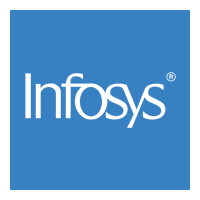
The tech market is facing plenty of challenges; for an expert view, see th eWeek video: Infosys Consulting CEO Andrew Duncan on Tech Headwinds.
AI Robotic Process Automation Companies
The fields of robotics and AI automation existed long before AI became a viable business solution. However, early uses of robotics—notably in auto factories—were merely devices programmed to perform the same task again and again. The more recently developed field of robotic process automation (RPA) makes full use of AI.
RPA vendors develop AI-based software that learns and automatically performs routine office productivity tasks. For instance, an office manager who has to gather files for a weekly report can set up an RPA automation to do that routine task so they can focus on higher-value work.
While many large companies offer RPA as part of their overall portfolio—notably SAP, ServiceNow, and IBM—the vendors in this category specialize in creating intelligent automation and RPA solutions to boost productivity.
UiPath
Leader in the RPA market
Generally acknowledged as the leader in the RPA market, UiPath offers a broad suite of business automation tools across API integration, intelligent text processing, and low-code app development. The company’s Marketplace platform offers an extensive menu of prebuilt automations, from “extract data from a document” to automations built for Microsoft Office 365.

Nuro
AI-powered autonomous vehicles
Nuro is a robotics-focused company that uses AI, advanced algorithms, and other modern technology to power autonomous, driverless vehicles for both recreational and business use cases. The Nuro Driver technology is trained with advanced machine learning models and is frequently quality-tested and improved with rules-based checks and a backup parallel autonomy stack. The company partners with some major retailers and transport companies, including Walmart, FedEx, Kroger, and Uber Eats.

Automation Anywhere
Democratized approach to enterprise RPA
As a player in the all-important cloud native ecosystem, Automation Anywhere offers its Automation Co-Pilot for Business Users to democratize automation. It does this by enabling non-technical staffers to create workflow automations. In 2021, the company acquired process intelligence vendor FortressIQ to expand its tool sets, which should benefit Automation Anywhere as the RPA market evolves toward more sophisticated automation.

Learn about the rapid evolution in the automation sector by watching the eWeek video: Automation Anywhere CEO Mihir Shukla on Intelligent Automation.
Anduril
Autonomous vehicles for threat defense
Anduril is a leading U.S. defense technology company that creates autonomous AI solutions and other autonomous systems that are primarily powered by Lattice. The tools offered by Anduril can be used to monitor and mitigate drone and aircraft threats as well as threats at sea and on land. Its most impressive autonomous systems include underwater vehicles and air vehicles for managed threat defense.

SS&C Blue Prism
RPA for ML decisioning and process orchestration
Acquired by financial services software vendor SS&C in 2022, Blue Prism appears to have enlarged its strategy from RPA to overall business automation. This is very much in keeping with the industry shift toward more all-encompassing automation: As AI gets smarter, RPA systems are better able to keep up with these innovations and provide true value in automation. Included in the Blue Prism offering are tools that perform ML decisioning and process orchestration.

EdgeVerve
AI and RPA-powered digital transformation across industries
EdgeVerve serves its enterprise clients a growing menu of pre-fabricated automations to speed up workflows in the most important and commonly needed business areas. Products include Finacle Treasury for banking and TradeEdge for supply chain management. Like the rest of the RPA sector, EdgeVerve is evolving its automation capabilities to support digital transformation; in essence, we’re heading toward a world where the office runs itself. Infosys acquired EdgeVerve in 2014, though the company still operates mostly as an independent arm.

Shield AI
AI pilot technology innovator
Shield AI is an innovative AI startup that has quickly gained notoriety and capital for its AI pilot technology. Hivemind is an AI pilot that can fly aircraft in both commercial and battle settings, giving users greater insights into their locations and travel paths as well as what’s happening with other pilots and aircraft in their fleet. At this point, Shield AI’s technology is powering several of the vendor’s own intelligent aircraft, including jets, V-BAT teams, and Nova 2.

WorkFusion
RPA for digital staffer development
RPA software platforms frequently work to create “digital workers,” otherwise known as AI-powered software robots. WorkFusion builds on this basic truth with a platform that includes six digital staffer personas. Each category of virtual worker is geared for the most common and/or important automation scenario. WorkFusion has a strong presence in the financial sector.

NICE
RPA for intelligent call center and customer interactions
A strong contender in the call center market, NICE’s RPA solutions are geared toward an array of customer-facing support functions. Significantly, its tool set includes speech and sentiment analysis, which is critical to the retail environment because it can effectively understand the emotions of callers. This type of sentiment analysis is a particularly hot area in the AI market.

Pega
RPA that predicts customer activity proactively
As businesses seek to grow toward a more fully automated environment, Pegas’ RPA architecture has kept pace, adopting a strategy that uses real-time data to guide automated customer interactions. The company touts its ability to read customer intentions, from potential purchases to imminent cancellations, before a customer acts. Overall, the company’s strategy is geared toward greater scalability to support increasingly all-encompassing automation.

For a complete overview of the RPA landscape, see our guide: Robotic Process Automation Vendors.
Conversational AI Companies
Some people don’t want to just click on software; they want to talk with it, and they want much easier and more natural ways to control software. Software equipped with conversational AI capabilities allows just this, as it understands and mimics human speech.
Conversational AI is powered by natural language processing, a subsector of AI focused on translating the idiosyncrasies of human speech into computer commands. There are numerous advantages to this, but here’s a big one: Conversational AI enables non-technical staff to use AI. No need for programmers or experts, everyone is invited.
Gridspace
Generative AI for customer-focused virtual agents
Gridspace is a conversational AI solution that works for different businesses, giving users access to virtual AI agents, advanced analytics, and AI coaching for better conversational outcomes with customer service reps. Virtual agents can be customized to handle quality assurance, revenue management, lead generation, and self-service customer relationship management requirements. The company consists of a multidisciplinary team of engineers, designers, and experts from SRI Speech Labs, where Siri was developed.

Kore.ai
DIY AI chatbots and virtual assistants
Considered a top player in conversational AI, Kore.ai’s no-code tool set allows non-technical staff to create versatile and robust virtual assistants. This “build it yourself” ethos is a dominant theme in the AI chatbot sector. The company is also known for its extensive NLP solutions.

Cognigy
AI-powered conversation agent coaching and optimization
A core offering of conversational AI vendors is tools that improve the performance of call center agents (or other voice-based customer reps). To serve this market, Cognigy offers Cognigy Agent Assist. The company also offers analytics tools and a low-code platform to enable users to create new bot assistants as needed for their situation.

Amelia
Conversational AI and knowledge bases powered by NLU
Amelia’s intelligent agents leverage advanced NLU capabilities—essentially the leading edge of AI chatbot technology. NLU technology enables a virtual agent to use sentiment analysis, which helps reps monitor the emotions of callers. From its initial start in conversational AI, Amelia has since expanded into AIOps and Amelia Answers, an AI-powered enterprise search solution.

OneReach.ai
Creator of Intelligent Digital Workers
OneReach.ai is following a leading trend in the conversational AI market, as the company evolves its offerings from a narrow call center focus toward an enterprise-wide “AI-based virtual staff member.” The result of this trend is that the conversational AI sector is merging with the RPA sector (see above) as conversational AI companies produce full-fledged digital team members. OneReach.ai continues to see success with its comprehensive conversational agents, which it calls “Intelligent Digital Workers.”

Avaamo
Generative AI agents for patient experience and CX
With a background in healthcare-focused conversational AI, Avaamo is extending its reach across various industry sectors, working to create solutions that address customer, employee, patience, and contact center experience. Its agents have also evolved to become true copilots, which assist users through the full lifecycle of their brand conversations.

Yellow.ai
Accessible prebuilt and third-party conversational models
With an intuitive user interface, Yellow.ai’s product offering includes user-friendly prefabricated models to deploy conversational AI agents; this approach to models is quite strategic, as ease of use is a top priority in the conversational AI market. To help integrate third-party functionality, Yellow.ai has built a marketplace where customers can select third-party tools for specific tasks.

boost.ai
Conversational AI company with hybrid NLU tech
boost.ai offers a full menu of advanced chatbot orchestration tools to speed deployment. To help call center reps boost performance with customer calls, boost.ai provides agents with a large repository of support data. The company claims its Hybrid NLU technology improves the quality of its virtual agents.

Healthcare AI Companies
AI healthcare companies are incentivized by two key advantages provided by AI and generative AI. First, artificial intelligence greatly expands the capabilities of medical professionals—and better tools are literally a matter of life and death. Second, AI is adept at streamlining bureaucracy, a huge part of the healthcare sector, which saves significant time and money. Look for healthcare to be a non-flashy but very powerful driver of AI’s progress in the future.
PathAI
Pathology-focused AI company
PathAI is one of the most advanced pathology-focused AI companies today, giving patients, laboratories, and pharmaceutical companies alike access to the AI-powered insights and solutions they need. The company offers accessible AI algorithms for optimized clinical trials, particularly for oncology, as well as AI-powered companion diagnostics, pre-screening predictions, spatial analyses, and translational research. The company’s algorithms and products specifically support biomarker quantification for various cancers, disease severity assessments, quality control, tumor cellularity quantification, and molecular prediction.

Viz.ai
AI platform for patient care coordination
Viz.ai offers AI-powered platforms and applications for care coordination, ensuring patient care is handled more holistically by all of their healthcare providers. The Viz.ai One platform is specifically designed to work in different areas of healthcare, including neurology, cardiovascular, vascular, trauma, and radiology. With this platform, healthcare providers quickly receive insights, clear images, alerts, and communications from other relevant providers, making it so they can more quickly and accurately diagnose their patients. Viz.ai is available in both the U.S. and the EU.

Paige AI
AI imaging technology for cancer diagnostics
Paige AI is a generative AI company in the healthcare sector that focuses on pathology, specifically cancer diagnostics. Its detailed imaging technology, AI-driven workflows and recommendations, and other smart features assist healthcare professionals in breast and prostate cancer diagnosis as well as in optimizing hospital and lab operations.

Insilico Medicine
AI pharmaceutical product development and design
Insilico Medicine is a research and development company that uses artificial intelligence for smarter biology and chemistry research and pharmaceutical analytics. Its PHARMA.AI suite includes PandaOmics, a tool for multi-omics novel target discovery and deep biology analysis; Chemistry42, an ML-powered tool for drug design and automated novel molecule creation; and InClinico, a tool that can both design and predict the success rate of a clinical trial.

Medtronic
AI-powered polyp detection and diagnosis
A fascinating fact about Nvidia: if you dig deep into the AI landscape, you’ll see Nvidia again and again. A good example of this is with Medtronic, which is a well-known medical device maker that operates the Genius AI solution, which enhances the detection of polyps in colonoscopies. The company has partnered with Nvidia to use AI to create a range of next-gen tools for diagnosis and treatment.

Enlitic
AI-powered medical data management
Enlitic’s Curie platform uses artificial intelligence to improve data management in the service of better healthcare. The goal is to make data more accurate, useful, and uniform to enable doctors and other healthcare professionals to make better patient care decisions. The platform also supports data anonymization, which is important for patient privacy and compliance with HIPAA and other healthcare privacy regulations.

Deepcell
AI for cell examination and classification
Deepcell is a biotech startup—spun out of Stanford University in 2017—that leverages AI to examine and classify cells. By identifying viable cells based on morphology (the study of shapes and arrangement of parts), Deepcell technology can more accurately perform diagnostic testing.

Activ Surgical
AI-powered surgical insights
Activ Surgical is an AI healthcare company that uses AI to provide real-time surgical insights and recommendations during surgical operations. The ActivSight product, powered by the ActivEdge platform, is designed to not only give surgeons easy-to-view real-time data but also to make it possible for them to switch between dye-free and dyed visualizations, depending on their needs. Important for healthcare workers, the solution is MIS-system compatible.

Tempus Radiology
AI insights for radiology images
To enhance medical imaging, Arterys—now merged with Tempus Radiology—accesses cloud-based GPU processors, which it uses to support a deep learning application that examines and assesses heart ventricles. This AI-based automated measurement of ventricles allows healthcare professionals to make far more informed decisions. With its merger with Tempus, its focus has expanded to look at radiology images in different formats.

Etcembly
ML-driven immunology and immunotherapy engineering
Etcembly is an immunotherapy company that focuses on designing new TCR therapies. Its therapies are optimized through a deep ML library of immunology expertise and computer-assisted immunotherapy engineering. The platform is designed to learn directly from the interactions of T-cells so appropriate TCR treatments can be identified and developed.
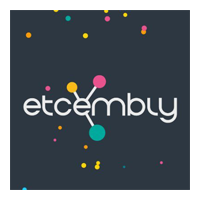
Corti
AI call center solution for healthcare and telemedicine
There are numerous companies using AI to provide call center support, but Corti’s niche is the healthcare sector. To provide a virtual voice assistant geared for the healthcare sector, the company’s solution has been trained with countless hours of conversations between healthcare workers. Among other tasks, the solution can support QA on calls to telemedicine centers.

Butterfly Network
Various AI health assessment and ultrasound technologies
A medical imaging vendor, Butterfly Network uses AI in myriad ways. In 2022, Butterfly Network debuted FDA-cleared AI software to support the use of ultrasound technology. In 2023, the company received FDA approval for its AI-enabled lung tool, which uses deep learning technology to more quickly and fully assess lung health.

Owkin
AI predictive analytics for drug development
Owkin uses AI to drive predictive analytics for the development of better drug solutions for a variety of diseases. Perhaps most notably, the company’s platform facilitates collaboration between data scientists and academic researchers. To support this development, Owkin has received a major investment from Sanofi, a French multinational pharmaceutical company.

GE HealthCare
AI orchestration for healthcare IT
Spun off from conglomerate GE in January 2023, GE HealthCare has developed an AI orchestration solution that fully integrates AI-enabled clinical applications into radiology for both GE and non-GE devices. This is being done to boost the quality of medical decision-making. Additionally, the company has hired top executives to assist in its AI healthcare expansion.

Stryker
AI assistance in medical procedures
Already a large and well-established medical device maker, in 2021, Stryker acquired the AI company Gauss Surgical and is aggressively moving to deploy AI more broadly across its product offerings. Among its notable products is the AI-based Stryker Mako robot, which can assist with numerous medical procedures.

Cleerly
AI for coronary health issue detection
In service to Cleerly’s ambitious goal—“creating a world without heart attacks”—the company’s artificial intelligence platform performs an analysis of non-invasive coronary computed tomography angiography (CCTA) scans to assess plaque levels in the heart. Cleerly’s algorithms mine an extensive database full of lab images to compare a patient with historical records.

ClosedLoop
AI for healthcare administration and admission management
ClosedLoop’s data science platform leverages AI to manage and monitor the healthcare landscape, working to improve clinical documentation to lower out-of-network use and predict admission and readmission patterns. Impressively, the company won the CMS Artificial Intelligence Health Outcomes Challenge in 2021.

Oncora Medical
AI healthcare digital assistant solutions provider
Oncora Medical’s machine learning software supports healthcare professionals with numerous administrative tasks in the manner of a digital assistant. It streamlines doctors’ time by assisting in documentation, stores all notes and reports, requests additional relevant notes from healthcare providers, and creates the needed forms for clinical and invoicing uses.

Atomwise
AI for more efficient drug development pipelines
The process of drug development has historically been slow and cumbersome, often requiring years to match compounds to develop new drugs. Atomwise aims to speed this up exponentially by using a deep learning-based discovery engine to sift through its vast database (the company claims 3 trillion compounds) to find productive matches.

For a full portrait of AI healthcare applications, see our guide: AI Top AI Healthcare Software.
Financial Services AI Companies
It’s clear that financial services firms are actively embracing artificial intelligence. Bank of America, in a breathless note to the investment community, opined that “AI is the new electricity.” So what exactly does this look like in an industry that is riddled with regulations, complexities, and longtime, established vendors that may be hesitant to try something new? The companies in this category are vying to show us.
Intuit
Financial assistant technology for business leaders
Intuit is an enterprise that has focused on providing both guided and self-service finance and tax tools to users of products like TurboTax, Credit Karma, Mint, QuickBooks, and Mailchimp. The company recently released Intuit Assist, a generative AI financial assistant that is able to provide SMB leaders with smart recommendations for their financial and customer service decisions; Intuit Assist is available for TurboTax, Credit Karma, QuickBooks, and Mailchimp. Intuit also boasts an AI research program that focuses on developing and refining new AI innovations with explainable AI, generative AI, and more.
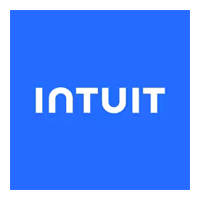
Stripe
Partnership with OpenAI to improve document and content processing
Stripe is a SaaS-based financial services company that is frequently selected for its user-friendly payment processing features. Most recently, Stripe has jumped aboard the AI train, partnering most heavily with OpenAI at this time. The two companies have something of an exchange going on right now: Stripe is using GPT-4 for smarter documentation and content summary generation in Stripe Docs, while Stripe is helping OpenAI improve its checkout process and other customer experiences through Stripe Billing, Checkout, Tax, and other Stripe products.

Capital One
AI for loan, fraud, and customer service management
Capital One is a prime example of how financial institutions are finding multiple ways to leverage artificial intelligence alongside tried and true business methods. The financial company’s many AI initiatives include explainable AI, which makes the loan approval process transparent; anomaly detection, which helps fight fraud; and NLP, which improves virtual assistants for customer service.

Brighterion (Mastercard)
AI solutions developer for financial services companies
Acquired by Mastercard in 2017, Brighterion serves Mastercard’s AI needs and also provides AI services to other companies. Brighterion’s AI Express offers customized AI solutions geared to the needs of financial services companies. Brighterion touts its “custom AI that’s production ready in 6-8 weeks.”

Numerai
AI-powered stock market prediction platform
Promoting itself as “the hardest data science tournament in the world,” Numerai’s AI-enabled, open-source platform offers a way for data scientists to predict trends in the stock market and make a profit if they’re right. The business model involves using machine learning models to forecast financial megatrends. The company is supported by Union Square Ventures, which co-founded Coinbase.

Skyline AI (JLL)
AI for intelligent real estate insights
An example of how AI can be leveraged to support virtually any financial transaction, Skyline AI uses its proprietary AI solution to more efficiently evaluate commercial real estate and profit from this faster insight. Competitors in the AI-driven real estate sector include GeoPhy and Cherre, which won the Business Intelligence Group AI Excellence Award. Since its acquisition by JLL in 2021, Skyline AI has continued to expand its teams and technologies for more intelligent real estate outcomes.

Ocrolus
Automated financial document analysis solutions
The need for AI-based automation is enormous in the financial sector because financial services firms always have oceans of metrics and data points to digest. Ocrolus enables banks and other lenders to fight fraud by automating financial document analysis. Significantly, Ocrolus’s human-in-the-loop solution maintains human experience as a core factor in document authentication.

AlphaSense
AI for finance intelligence in public and private companies
AlphaSense competes in the lucrative business data market against big players like Bloomberg. Among AlphaSense’s AI-fueled initiatives, the company is developing a solution that can summarize financial reports to more quickly reveal salient data trends. Recently, AlphaSense announced plans to acquire Tegus, which will certainly expand its financial data and workflow capabilities even further.

Zest AI
AI for borrower data research optimization
Zest AI uses AI to sift through troves of data related to borrowers with limited credit history, helping lenders make decisions with this limited data. In particular, it helps with the auto lending market, where the company claims it cuts underwriter losses by approximately 25% by better quantifying creditworthiness.
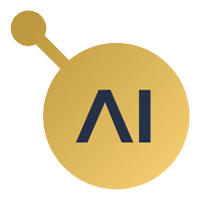
Signifyd
AI for fraud detection and mitigation
Signifyd is a company that uses AI to create a “score”—from 0 to 1,000—to fight fraud in the financial sector. While the trend of deploying AI to combat financial malfeasance is sweeping the industry, Signifyd claims to distinguish itself by boosting transaction approvals and dramatically lessening false declines.

HighRadius
Machine learning technology for accounts receivable automation
A leading player in the accounts receivable automation software sector, HighRadius uses machine learning to help with labor-intensive tasks like matching payments with invoicing and assigning credit limits. The company partners with Citibank, Bank of America, and SAP.

DataVisor
AI for fraud mitigation across transaction types
DataVisor deploys AI to combat fraud across many transaction types, from digital payments to fintech platforms. For instance, it monitors transactions in real time to block credit card fraud and protects ACH and Zelle payments to fight unauthorized payments.

Education AI Companies
One of the great promises of AI in education is that it will provide one-on-one tutoring and coaching opportunities, which will markedly boost student performance. If this were to fully mature, AI “teachers” would provide lessons at a far-lower cost than human tutors. AI can also support teachers, helping them quickly craft lesson plans and other educational resources. All of this is simply guesswork, as AI has only started to prove its capabilities in this area. In any case, learning how to use AI will become a core skill for students as it becomes woven into every element of work and culture.
Carnegie Learning
AI education app for mathematics
Focusing on the K-12 market, Carnegie Learning’s MATHia with LiveLab is well recognized as an advanced AI learning app. The app uses an AI-powered cognitive learning system to support math education, offering students one-on-one interactions that allow them to work at a pace that best suits their skill level.

CENTURY
Algorithmic matching for student learning programs
CENTURY is a UK-based educational platform company that uses neuroscience to enable enhanced learning in various high school and college core topics. CENTURY uses algorithms like those at Netflix and Amazon to match previous student experiences with what they should focus on next for optimal educational progress. Additionally, the platform offloads some repetitive teaching tasks so teachers can spend more time focusing on students’ needs.

ELSA
AI for learning English as a non-native speaker
ELSA is a company that uses AI to smooth out the user experience side of learning English as a non-native speaker. Its Speech Analyze tool uses AI to analyze user speech patterns, accents, and other details in order to give feedback on possible improvements. Users can also take assessments that ELSA’s AI uses to customize courses and learning timelines that fit that particular user. ELSA is used in both corporate and educational settings.

Kidaptive (McGraw Hill)
AI-driven child development and learning app
Kidaptive’s “adaptive” AI technology is referenced in its name. Founded by two Stanford alumni, Kidaptive’s Adaptive Learning Platform is heavy on next-gen technology: It uses a multi-tenant cloud deployment and is supported by Hadoop. Solutions include Learner Mosaic and Leo’s Pad to support what it calls “playful, whole child development.” Kidaptive was acquired by McGraw Hill in 2021.

Amira Learning
AI for gamified reading and literacy training
Winner of Time Magazine’s Best Inventions award in 2021, Amira Learning uses an AI-powered gamified learning environment to improve reading skills. Children read aloud as Amira provides real-time support; the solution has multiple tutoring techniques to coach young readers, including offering encouragement.

Duolingo
OpenAI-powered language-learning technology
Well known for teaching foreign language acquisition (they claim more than 50 million monthly users), Duolingo uses OpenAI’s GPT-4 to create free-flowing conversations with language learners, recreating the experience of chatting with a native speaker. Here’s an impressive credential for the company: The OpenAI website hosts a page detailing a Duolingo case study.

Cognii
AI for creative student assessment formats
Cognii’s VLA (virtual learning assistant) platform speaks with students in real time, providing one-on-one coaching. The goal is to transcend the limits of a multiple-choice question format and offer a wide-ranging conversation. The company’s NLP tools respond to students’ own language styles.

Querium
AI tutor for advanced STEM projects
Focusing on short-form lessons in the STEM sector, Querium’s StepWise AI tutor provides students with constant feedback as they work through challenging projects. It is designed to detect issues and provide personalized assistance. The company promotes its “AI based on the wisdom of master teachers.”

Squirrel AI Learning
AI for adaptive, personalized learning programs
Based in China, Squirrel Ai Learning uses artificial intelligence to drive adaptive learning for students at a low cost. Its focus is personalized tutoring on the K-12 sector. The company’s engineers work to break down subjects into smaller sections, enabling the AI platform to understand exactly where each student needs help.

Cybersecurity AI Companies
The challenge with creating a list of today’s AI cybersecurity companies is that every major cybersecurity company now claims to use AI. So a list of “top AI cybersecurity companies” is essentially the same as “top cybersecurity companies.”
Some industry experts doubt the efficacy of AI cybersecurity and say that, while the vendors make big noises about AI, the technology is still immature. That issue is open to debate, but one thing is true. For customers of these security companies, it’s very hard—if not impossible—to look under the hood and fully understand the depth and quality of a vendor’s AI.
CrowdStrike
Managed and comprehensive XDR solution
CrowdStrike offers XDR (extended detection and response), a growing theme in cybersecurity that makes heavy use of artificial intelligence and automation to patrol infrastructure and quickly alert admins to threats. CrowdStrike promotes its managed XDR system’s ability to use AI to close the skills gap in cybersecurity by performing the work of missing security pros.

To learn about the role of AI and perimeter protection in cybersecurity, see the eWeek video: CrowdStrike’s Amol Kulkarni on Trends in Cybersecurity.
Zscaler
AI-powered protection of zero-trust architecture
Zscaler uses a powerful emerging technology in cybersecurity called zero-trust architecture, in which the permission to move through a company’s system is severely limited and compartmentalized, greatly reducing a hacker’s access. The company’s AI models are trained on a massive trove of data to enable it to constantly monitor and protect this zero-trust architecture. In April 2024, Zscaler acquired Airgap Networks, another leading cybersecurity and AI solutions provider. With this move toward AI expansion, expect to see Zscaler’s technologies benefit from Airagap’s innovations, such as ThreatGPT, an OpenAI-powered solution for security analytics, vulnerability detection, and network segmentation support.

SentinelOne
Comprehensive AI endpoint, cloud, and identity security solutions
SentinelOne’s Singularity platform is an AI-powered, comprehensive cybersecurity solution that includes extended detection and response, an AI data lake, AI threat detection, and other features for endpoint, cloud, and identity-based security needs. Most recently, SentinelOne expanded its generative AI capabilities, using generative AI for reinforcement learning and more efficient threat detection and remediation.

Abnormal Security
AI intelligence for employee security practices
Protecting email is a bit of a mind game: Hackers can send deceptive phishing appeals directly to every staffer in the company, so it’s likely that someone’s going to fall for the scheme. To combat this, Abnormal Security uses AI to learn the typical behavior of every employee to help block malicious entry to the perimeter. Impressively, security leader CrowdStrike has invested in and partnered with Abnormal.

Vectra AI
AI for multi-mode cybersecurity measures
Vectra AI’s Cognito platform uses artificial intelligence to power a multi-pronged security offensive. This includes Cognito Stream, which sends enhanced metadata to data repositories and the SIEM perimeter protection; and Cognito Protect, which acts to quickly reveal cyberattacks.

Sophos
Longstanding leader and innovator in AI-powered cybersecurity
Clearly a leader in AI-based cybersecurity long before the current AI hype cycle, the UK-based company launched Sophos Artificial Intelligence way back in 2017. This initiative focuses on developing forward-looking advances in machine learning and data for human-AI interaction and other security uses. Sophos’s deep tool set ranges from endpoint detection to encryption to unified threat management.

To learn how AI is dramatically reshaping security, see the eWeek video: Sophos CTO Joe Levy on AI in Cybersecurity.
Fortinet
AI for automated SOC optimization
At the center of today’s enterprise cyber protection is the security operations center (SOC). Fortinet’s automated SOC uses AI to ferret out malicious activity that is designed to sneak around a legacy enterprise perimeter. The strategy is to closely interoperate with security tools throughout the system, from cloud to endpoints. In June 2024, Fortinet announced that it would be acquiring Lacework, a leading provider of AI-powered cloud, code, and edge security solutions. Fortinet plans to integrate Lacework’s CNAPP into its current AI solutions in order to create a more comprehensive, full-lifecycle AI cloud solution for its customers.

Palo Alto Networks
AI-human partnership for security observability taskwork
With a strong reputation as a cybersecurity company with an advanced strategy, Palo Alto Networks’ AI-powered Prisma SASE (secure access service edge) solution is integrated with its Autonomous Digital Experience Management (ADEM) tool. The net result is that AI helps human security admins with observability across their infrastructure, which is crucial for enterprise security.

Check Point
AI for phishing and DNS threat detection
Check Point’s Quantum Titan offers three software blades (security building blocks) that deploy deep learning and AI to support threat detection against phishing and DNS exploits. The company also focuses on IoT, with tools that apply zero-trust profiles to guard IoT devices in far-flung networks.

SecurityScorecard
Democratized risk management recommendations
SecurityScorecard is a threat and risk intelligence company that provides smart security ratings, automatic vendor detection, cyber risk quantification, and other products and services to identify risks and vulnerabilities before they spiral out of control. The company recently added generative AI to its toolkit through a security ratings platform that has OpenAI’s GPT-4 as one of its foundational models. With this new feature, users don’t have to have cybersecurity or risk management experience to ask questions and receive risk management recommendations.

Cylance AI (BlackBerry)
AI security specialized in mobile IoT
A division of BlackBerry, Cylance AI touts its “seventh generation cybersecurity AI.” Due to its extended lifecycle in use by clients, the AI platform has been trained on billions of cyberthreat datasets. Given its mobile credentials, Cylance is a key player in cybersecurity for the mobile IoT world, a quickly growing sector.

BigPanda
Machine learning and automation for improved observability
Considered a leader in the AIOps sector, BigPanda uses AI to discover correlations between data changes and topology (the relationship between parts of a system). This technology works to support observability, a growing trend in infrastructure security. In essence, BigPanda uses machine learning and automation to extend the capabilities of human staff, particularly to prevent service outages.

Retail AI Companies
AI in retail typically focuses on personalizing the customer experience and supporting automation and data analytics to improve the supply chain. To fully portray AI’s role in retail, this section lists both AI vendors and large retailers that deploy AI. Both groups play a crucial role in creating and enhancing the many uses for AI in retail.
Shelf Engine
AI for stock and inventory optimization
Shelf Engine is an AI startup with a goal to solve one of the most problematic questions in retail: What is the optimal amount of inventory to order? This question is particularly crucial for sellers of perishable goods like fruits and vegetables. Shelf Engine works to automate the stocking process so retailers can hold the optimal inventory level and so customers find what they need while stores need handle only minimal waste.

Deep North
Computer vision and AI for storefront monitoring
Combining computer vision with artificial intelligence, Deep North is a startup that enables retailers to understand and predict customer behavior patterns in the physical storefront. The company specifically provides tools so businesses can use this information to improve customer experience and boost sales. Deep North is an example of how AI is evolving toward analyzing nearly every aspect of human action.

Lowe’s
Partnership with Nvidia to create more data-driven retail processes
Using Nvidia’s AI-based omniverse technology, Lowe’s built a digital twin deployment that allows the store’s retail assistants to quickly see and interact with the retailer’s digital data. The goal is to streamline operations and improve customer service. The AI system will also power a virtual 3-D product catalog.
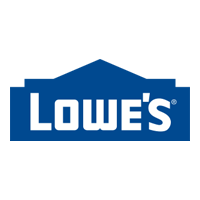
Bloomreach
AI-driven search and merchandising
A prime example of an AI vendor for the retail sector, Bloomreach’s solutions include Discovery, an AI-driven search and merchandising solution; and Engagement, a consumer data platform. This type of stand-alone AI vendor serving an industry vertical is likely to flourish because many large companies are not equipped to develop AI tool sets themselves.

Accenture
Platform for dynamic merchandising and other retail optimization opportunities
Consulting giant Accenture’s ai.RETAIL solution enables retailers to use AI to turn data —which retailers have reams of—into action that boosts the bottom line. The platform includes dynamic merchandising, providing more real-time actionable data to store clerks, and driving predictive insights to stay ahead of retail trends.

Standard AI
AI for autonomous retail experiences
Clearly the wave of the future, Standard AI is an AI platform that allows customers browsing in stores to select and buy their item choices without the delay of paying a cashier. The strategy is “autonomous retail,” in which retail locations are retrofitted with AI technology to streamline the shopping experience.

Lucyd Eyewear
Smart glasses that can hear
So you’ve been waiting for the first ChatGPT-enabled eyewear? Wait no more: Lucyd, a retailer of “smart” eyewear under the Eddie Bauer and Nautica brand names, has unveiled a smartphone app that allows you to speak to your glasses and hear responses through tiny speakers. The “wearables” sector now has a niche called “hearables.”

Veesual
AI-powered virtual-try-on app
Veesual is an AI-powered virtual-try-on app that allows users to customize their outfits, virtual models, and the digital dressing room where they try on clothing. The tool uses deep learning so clothing images look realistic and maintain their definition when merged with human model images. Additionally, Veesual’s CX-focused approach to AI pays attention to finding and showing customers the best sizes for their needs.

Companion
AI companion for pets
An AI-powered companion for your dog, Companion’s box (about the height of an average dog) uses machine vision and machine learning to interact with your pet in real time. The device can even dispense treats, which should help with any behavioral training goals. The company also plans on an AI companion for cats; given feline insouciance, the training modules might not be so well received.

AI Industry Organizations
These industry organizations for the AI sector play a number of roles. First and foremost, they advocate for the regulation of artificial intelligence. This is an enormously important focus, given how AI’s exponential growth will affect everything around it. To what extent can we as a society impose guidelines on AI’s growth, which has thus far been driven by pure profit?
These groups also lobby for greater diversity in AI, which is essential. We’ve already seen that AI systems embody legacy bias; this must be corrected more proactively to create inclusive systems. Additionally, these AI organizations support cross-vendor development of AI to promote the overall advancement of the technology.
Association for the Advancement of Artificial Intelligence
Founded in 1979, the AAAI is an international scientific group focused on promoting responsible AI use, improving AI education, and offering guidance about the future of AI. It gives out a number of industry awards, including the AAAI Squirrel AI Award for Artificial Intelligence for the Benefit of Humanity, which provides $1 million to promote AI’s efforts to protect and enhance human life.

AI4Diversity
This nonprofit’s motto is “Leveraging AI, education, and community-driven solutions to empower diversity and inclusion.” AI4Diversity was founded by Steve Nouri, a social media influencer and AI evangelist at Wand. Given that AI platforms have been found to perpetuate the bias of their creators, this focus on diversity and inclusion is essential.

AI Infrastructure Alliance
Supported by a group of major enterprise vendors that includes Hewlett Packard Enterprise, and sponsored by the likes of Nvidia, the AI Infrastructure Alliance “aims to foster collaboration and interoperability between leading MLOps tools to allow a CS [canonical stack] to form more quickly and effectively.” The organization supports open-source and open-core software so users aren’t locked into narrow proprietary solutions.

Partnership on AI
Founded by a consortium of tech giants—Google, Meta, Amazon, IBM, and Microsoft—Partnership on AI is a nonprofit with a mission to research best practices for AI systems. It works to “bring together diverse voices from across the AI community.” Partnership on AI includes more than 100 partners from academia and business.

Black in AI
Founded in 2017, Black in AI is a technology research and advocacy group dedicated to increasing the presence of black tech professionals in artificial intelligence. Black in AI notes that “representation matters,” and that AI algorithms are trained on data that reflects a legacy of discrimination, so promoting black voices in AI development is crucial to the technology’s growth.

Machine Intelligence Research Institute (MIRI)
Originally known as the Singularity Institute for Artificial Intelligence, MIRI supports research to “ensure that smarter-than-human artificial intelligence has a positive impact.” Among the cautionary articles that MIRI has posted: Pausing AI Developments Isn’t Enough. We Need to Shut it All Down.

AI Now Institute
AI Now Institute creates policy research to address the concentration of power in the tech world. Their report Confronting Tech Power notes that “there is no AI with big tech,” and that “a handful of private actors have accrued power and resources that rival nation-states while developing and evangelizing artificial intelligence as critical social infrastructure.”

The Alan Turing Institute
Funded by the UK government, The Alan Turing Institute produces research that addresses crucial issues in artificial intelligence, society, and the economy and collaborates with businesses and public groups to use the research to deal with pressing concerns. That this group is government-funded raises a major question: Will more governments around the world step up to fund groups that prompt the AI sector to work for greater social good?

The Rockefeller Foundation
While AI is only one of many focuses for this famed nonprofit, the Rockefeller Foundation is quite active in the AI sector; for example, one of its core focuses is the responsible governance of AI. The organization issued a report called AI+1: Shaping Our Integrated Future, which is based on conclusions from a diverse group of experts who seek to deploy machine learning for positive social impact. Additionally, the foundation makes grants, including donating $500,000 to Black in AI.

To learn about the many challenges in AI ethics, see the eWeek video: Rockefeller Foundation’s Zia Khan on AI and Ethics.
Bottom Line: AI Companies
This list of AI companies is, admittedly, a partial portrait. In truth, it’s a blurry snapshot of something whizzing by too fast to completely capture. The generative AI landscape in particular changes daily, with a slew of headlines announcing new investments, fresh solutions, and surprising innovations.
The progress of artificial intelligence won’t be linear because the nature of AI technology is inherently exponential. Today’s hyper-sophisticated algorithms, devouring more and more data, learn faster as they learn. It’s this exponential pace of growth in artificial intelligence that makes the technology’s impact so impossible to predict—which, again, means this list of leading AI companies will shift quickly and without notice.
As investment pours in, the underlying technologies that fuel artificial intelligence are each seeing their own rocket blasts of innovation. Machine learning, deep learning, neural networks, generative AI—legions of researchers and developers are creating a remarkable profusion of generative AI use cases. In sum, the lifecycle for these AI companies is not so much digital transformation as digital revolution, and the next version of this list is likely to look completely different.
To learn about AI certifications that can advance your career, see our guide, 30 Top AI Certifications.
